The Camaro ZL1 1LE Torches the Ring...

Team Camaro just went ballistic.
With ride and handling engineer Bill Wise at the wheel, the 2018 Camaro ZL1 1LE ate the 12.9-mile Nürburgring Nordschleife for breakfast, devouring the Teutonic track in an absurd 7:16.04, making it the fastest production Camaro, ever.
It might even be the fastest piece of metal GM has ever made for public consumption.
To put the Camaro’s time in context, the Corvette ZR1 officially looped the Green Hell 3.6 seconds slower than the 1LE; a brand new Ferrari 488 GTB is 5.6 seconds behind; meanwhile, the Formula 1–derived Enzo looks like a hot mess showing up 9.1 seconds after the land rocket from Lansing.
Rumor has it that Wise actually turned in a hand-timed 7:13.xx, but it will remain unofficial.
That’s like, super, stupid fast.
“With chassis adjustability unlike any vehicle in its peer group, the Camaro ZL1 1LE challenges supercars from around the world regardless of cost, configuration or propulsion system,” said Al Oppenheiser, Camaro chief engineer, in a statement.
“To make up more than a second per mile on the Nordschleife compared to the ZL1 automatic is a dramatic improvement and speaks to the 1LE’s enhanced track features.”
Thanks to a ridiculous kit list the 1LE’d ZL1 has propelled the Camaro into the realm of dream cars.
GM’s heavy hitting 650-horsepower supercharged LT4 V8 is aided and abetted by a fully adjustable set of Multimatic DSSV dampers, a bigly front splitter, sweet dive planes, a carbon-fiber rear wing, and a specially made batch of Goodyear Eagle F1 Supercar 3R rubbers.
According to Chevrolet, the lap was set on the car’s production tires, unlike the Lamborghini Huracan Performante’s 6:52.01 Nürburgring lap which was controversially set earlier this year using a doctored set of Pirelli Trofeo Rs.
The 2018 Camaro ZL1 1LE arrives this summer with a $69,995 price tag, including destination.
A version of this article originally appeared on GMInsideNews.com

More by Michael Accardi
Latest Car Reviews
Read moreLatest Product Reviews
Read moreRecent Comments
- W Conrad I'm not afraid of them, but they aren't needed for everyone or everywhere. Long haul and highway driving sure, but in the city, nope.
- Jalop1991 In a manner similar to PHEV being the correct answer, I declare RPVs to be the correct answer here.We're doing it with certain aircraft; why not with cars on the ground, using hardware and tools like Telsa's "FSD" or GM's "SuperCruise" as the base?Take the local Uber driver out of the car, and put him in a professional centralized environment from where he drives me around. The system and the individual car can have awareness as well as gates, but he's responsible for the driving.Put the tech into my car, and let me buy it as needed. I need someone else to drive me home; hit the button and voila, I've hired a driver for the moment. I don't want to drive 11 hours to my vacation spot; hire the remote pilot for that. When I get there, I have my car and he's still at his normal location, piloting cars for other people.The system would allow for driver rest period, like what's required for truckers, so I might end up with multiple people driving me to the coast. I don't care. And they don't have to be physically with me, therefore they can be way cheaper.Charge taxi-type per-mile rates. For long drives, offer per-trip rates. Offer subscriptions, including miles/hours. Whatever.(And for grins, dress the remote pilots all as Johnnie.)Start this out with big rigs. Take the trucker away from the long haul driving, and let him be there for emergencies and the short haul parts of the trip.And in a manner similar to PHEVs being discredited, I fully expect to be razzed for this brilliant idea (not unlike how Alan Kay wasn't recognized until many many years later for his Dynabook vision).
- B-BodyBuick84 Not afraid of AV's as I highly doubt they will ever be %100 viable for our roads. Stop-and-go downtown city or rush hour highway traffic? I can see that, but otherwise there's simply too many variables. Bad weather conditions, faded road lines or markings, reflective surfaces with glare, etc. There's also the issue of cultural norms. About a decade ago there was actually an online test called 'The Morality Machine' one could do online where you were in control of an AV and choose what action to take when a crash was inevitable. I think something like 2.5 million people across the world participated? For example, do you hit and most likely kill the elderly couple strolling across the crosswalk or crash the vehicle into a cement barrier and almost certainly cause the death of the vehicle occupants? What if it's a parent and child? In N. America 98% of people choose to hit the elderly couple and save themselves while in Asia, the exact opposite happened where 98% choose to hit the parent and child. Why? Cultural differences. Asia puts a lot of emphasis on respecting their elderly while N. America has a culture of 'save/ protect the children'. Are these AV's going to respect that culture? Is a VW Jetta or Buick Envision AV going to have different programming depending on whether it's sold in Canada or Taiwan? how's that going to effect legislation and legal battles when a crash inevitibly does happen? These are the true barriers to mass AV adoption, and in the 10 years since that test came out, there has been zero answers or progress on this matter. So no, I'm not afraid of AV's simply because with the exception of a few specific situations, most avenues are going to prove to be a dead-end for automakers.
- Mike Bradley Autonomous cars were developed in Silicon Valley. For new products there, the standard business plan is to put a barely-functioning product on the market right away and wait for the early-adopter customers to find the flaws. That's exactly what's happened. Detroit's plan is pretty much the opposite, but Detroit isn't developing this product. That's why dealers, for instance, haven't been trained in the cars.
- Dartman https://apnews.com/article/artificial-intelligence-fighter-jets-air-force-6a1100c96a73ca9b7f41cbd6a2753fdaAutonomous/Ai is here now. The question is implementation and acceptance.



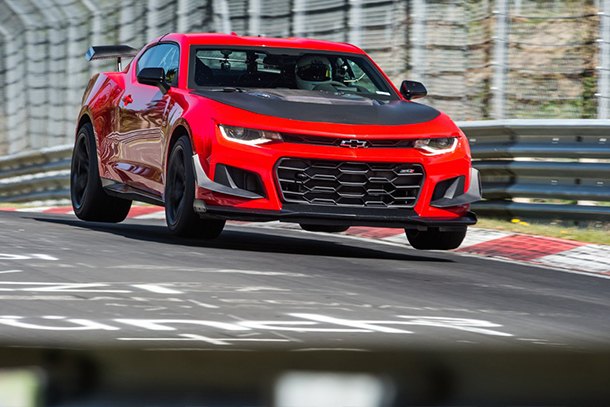















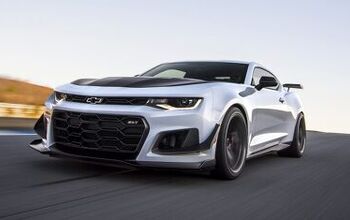
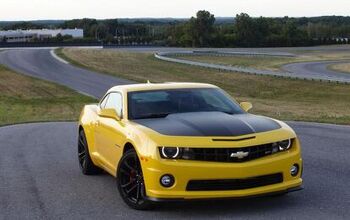
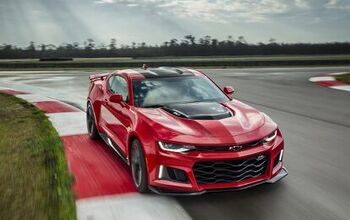
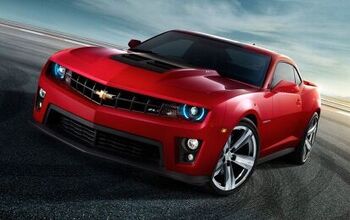
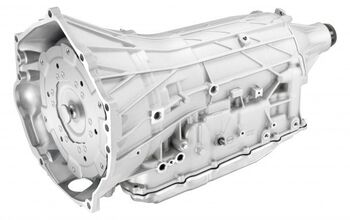



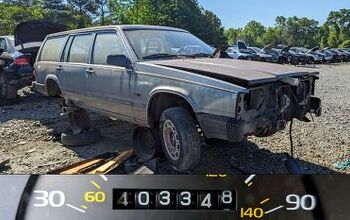






Comments
Join the conversation
Random observation: I think the car would be faster if it kept the drive wheels on the pavement.
After watching the video it makes me miss driving a stick.